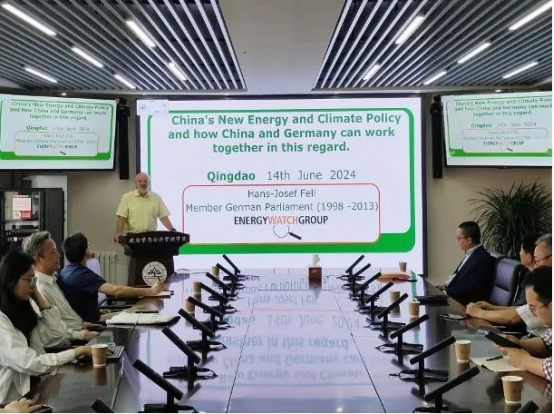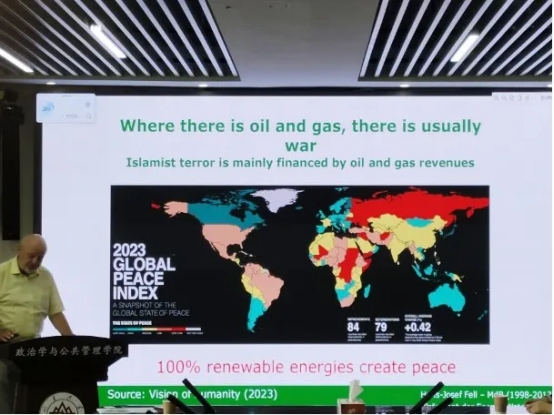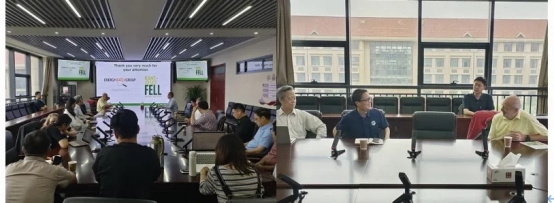On the morning of June14, 2024, the10th lecture of the“Cooperation and Development”series, jointly organized by the School of Political Science and Public Administration at Shandong University, the Institute of SCO Studies of Shandong University, the Institute for Public Safety Research of Shandong University, was successfully held at the meeting room S436 on the fourth floor of Huagangyuan South Building. This lecture is themed "China's Robust Clean Technology Policies and Industries Leading the World to Achieve Success in Climate Protection". Itwasdelivered by Hans-Josef Fell, an internationally recognized initiator of the renewable energy movement, a recipient of the German Federal Cross of Merit, the LUIChe Woo Prize for World Civilization of the Hong Kong Special Administrative Region, and a senior research fellowofthe Institute of SCO StudiesofShandong University.The lecture was chaired by Professor Edmund Li Sheng, Distinguished Professor at the School of Political Science and Public Administration and Executive Dean of the Institute of SCO Studies, Shandong University. Faculty members and students from the School of Political Science and Public Administration and the School of Law participated in the academic exchange and discussion.

At the beginning of the lecture, Hans-Josef Fell pointed out that global warming, resource wars, and global health have posed a serious threat to global peace and security. Among them, global warming has sounded the final alarm, and it is urgently necessary to make arrangements to reduce greenhouse gas emissions to find a "Holocene" path for humanity and create peace through 100% renewable energy. Hans-Josef Fell emphasized that the energy transition is not a matter of technical or economic feasibility, but a matter of political will. 100% renewable energy globally is more cost-effective than the current energy system and is committed to achieving zero emissions by 2050. Finally, Hans-Josef Fell put forward technical and policy suggestions on how to achieve the use of 100% renewable energy, and believed that China has always been actively exploring the transformation towards a 100% renewable energy zero-emission economy and has made great progress. ProfessorEdmund Li Shengbelieved that under the vision of a community with a shared future for mankind, China has been committed to the path of green and low-carbon development. Relevant research is helpful for us to comprehensively understand the sources, development, and application of renewable energy, and has important practical significance.

In the interactive communication session, teachers and students discussed issues such as the energy policies and cooperation between the United States and Europe, the impact of the political system on energy policies, energy law, the relationship between renewable energy and security, and the relationship between energy transformation and industrial transformation. At the end of the lecture, ProfessorEdmund Li Shengsummarized the meeting and once again expressed his gratitude for Hans-Josef Fell's wonderful speech.

This lecture provided a communication platform for the teachers and students present to further understand and study relevant issues such as international energy transformation and energy politics.The School of Political Science and Public Administration at Shandong University remains committed to providing high-quality academic resources for its faculty and students, both domestically and internationally. We encourage continued attention to the school’s updates and the "Cooperation and Development" lecture series organized by the Institute of SCO Studies.
